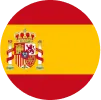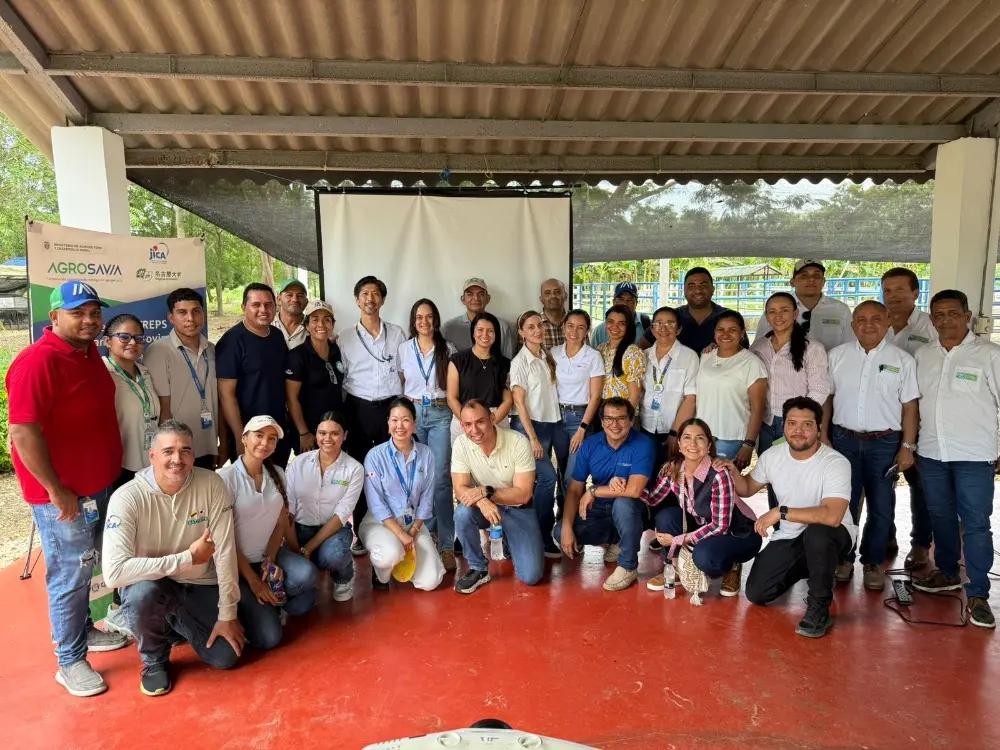Formal closing of Phase 3 of the SATREPS project.
• A central moment occurred with the recognition and farewell to Mr. Yoichi Ueno, and the official welcome of Ms. Risa Kikuchi, new JICA Coordinator.
• The projection toward Phase 4, the penultimate stage of the project extending until 2027, was one of the core themes of the event. This phase is considered strategic.
Montería, Córdoba. November 10, 2025. At an event held at AGROSAVIA’s Turipaná Research Center, the SATREPS project, the result of cooperation between Colombia and Japan, formally closed its Phase 3. The event combined a review of achievements, strategic planning, and a meaningful leadership transition ceremony, bringing together the project’s multidisciplinary team and its strategic partners.
The event was launched by Turipaná’s Administrative and Financial Coordinator, Ángel Pérez, who highlighted the project’s significant progress, now past its halfway point after three years of implementation. A central moment was the recognition and farewell to Mr. Yoichi Ueno, Coordinator for the Japan International Cooperation Agency (JICA), the project’s main partner. Attendees expressed their gratitude for his invaluable leadership and management. In a symbolic act, Ms. Risa Kikuchi, the new JICA Coordinator, was officially welcomed. She expressed her enthusiasm for joining the team and facing the challenges ahead.
Lorena Aguayo, Ph.D. Researcher and Project Manager for AGROSAVIA, the main implementing institution in Colombia, stated that “a comprehensive review of the SATREPS project was carried out, highlighting the joint work with national and international partners. On the Japanese side, the consortium includes Nagoya University, Chubu University, and the company ListenField.” In Colombia, CIAT and FEDEGAN collaborate as key actors for field validation and technology transfer.
In this space, the most relevant technical advances were presented, such as the development of the digital platform for livestock traceability, whose connection with FEDEGAN’s API is already underway, progress in the forage prediction model validated on producers’ farms, and advances in the study of the ruminal microbiome of cattle in the department of Córdoba.
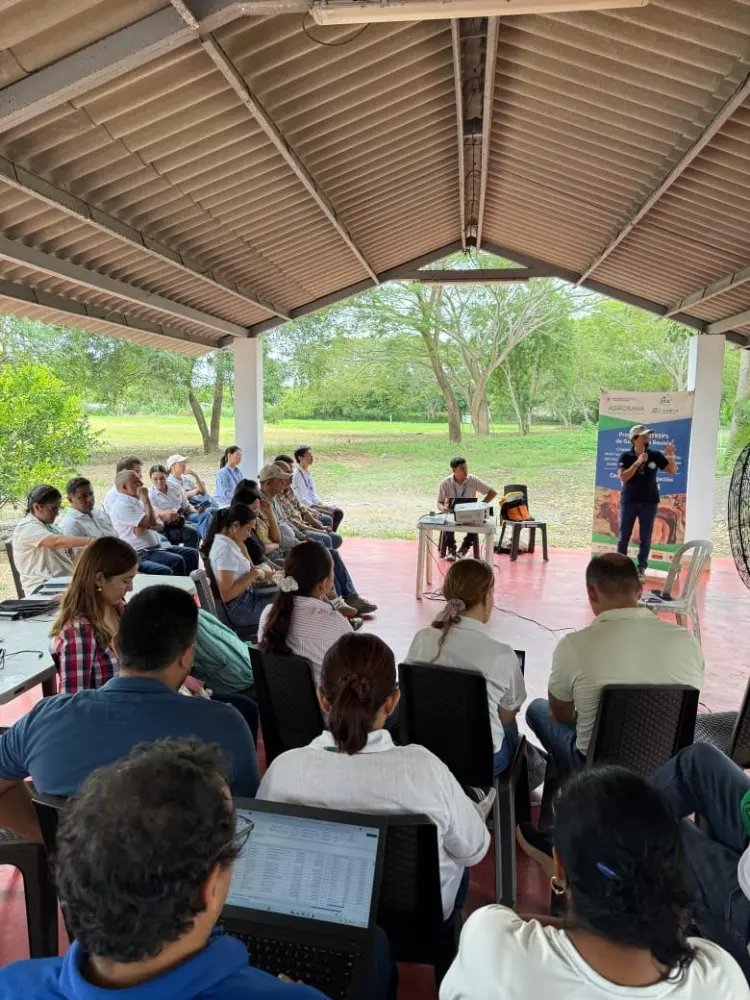
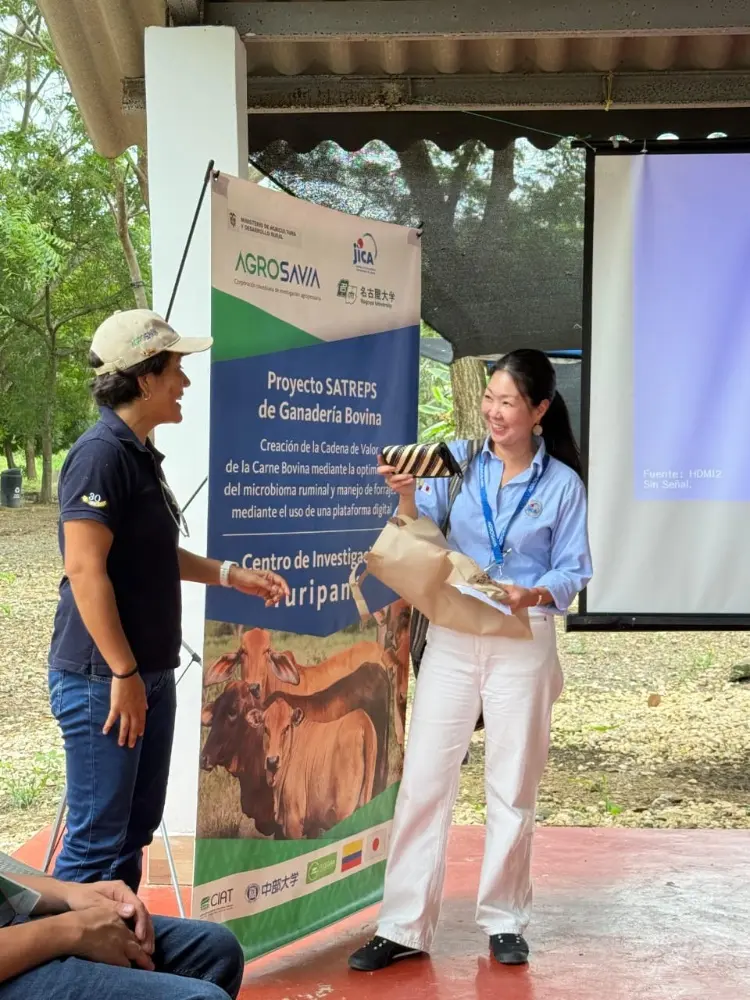
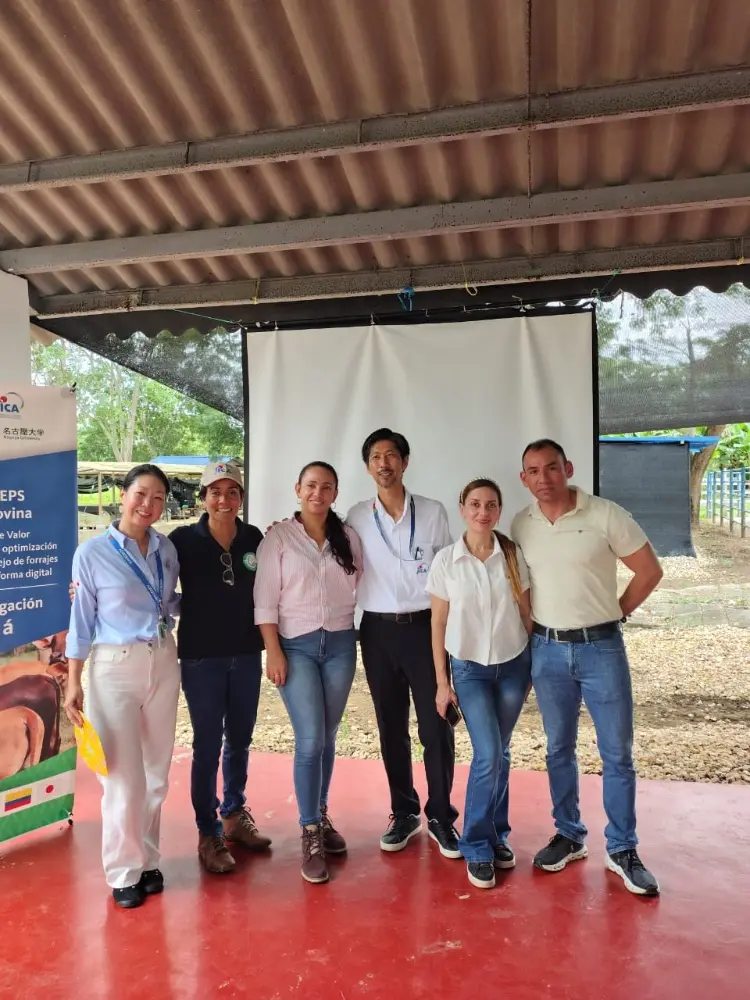
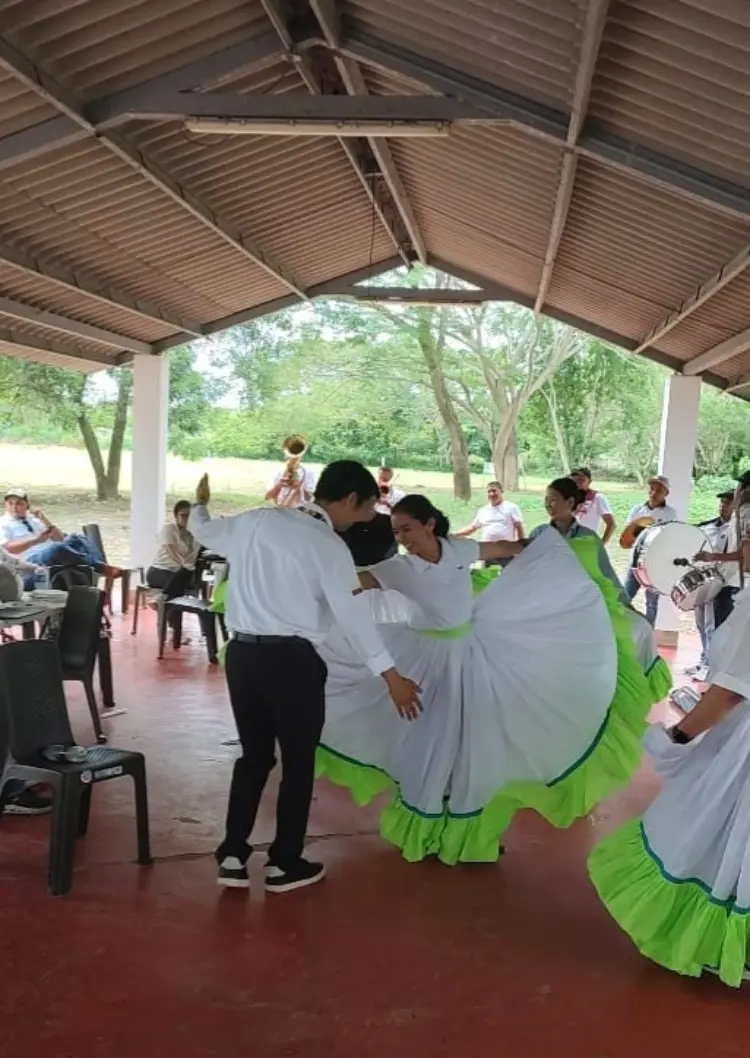
“The projection toward Phase 4, the penultimate stage of the project extending until 2027, was one of the core themes of the event. This phase is considered strategic for consolidating results and preparing the ground for the final phase. In this context, AGROSAVIA and JICA reaffirmed their commitment to achieving common goals, optimizing resources, and strengthening coordination, thus demonstrating strong institutional determination to overcome any limitations,” added Aguayo.
Within the value-added component, the ongoing meat quality analyses were highlighted, as they will serve as a scientific basis to support and communicate the superior attributes of the product under the “Grass-Fed” label. While the current name of the label will be maintained, the strategy will focus on enhancing its market value by emphasizing the differentiating characteristics validated through research.
The event concluded with a moment of camaraderie that included a demonstration of Colombian folk music, reflecting the spirit of collaboration and cultural appreciation that has characterized this international partnership. With a consolidated leadership transition and a clear roadmap, the SATREPS project is strengthened to advance in its mission of contributing to a more sustainable and competitive livestock sector in Colombia.
- More information here:
- Liseth Cárdenas
- Communications, Identity and Corporate Relations Professional
- Research Center Turipaná
- Communications, Identity and Corporate Relations Advisory Office
- ljcardenas@agrosavia.co
- AGROSAVIA

